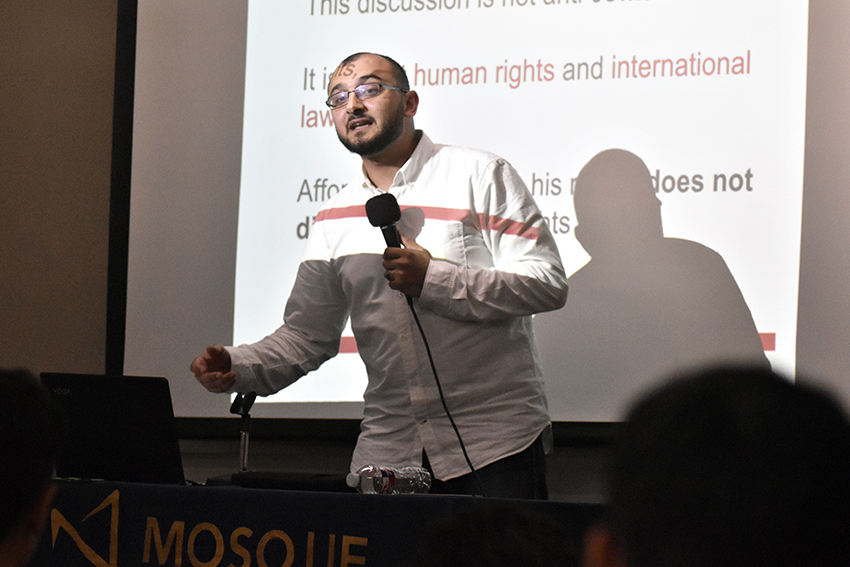UT’s Palestine Solidarity Committee hosted guest speaker Taher Herzallah on Oct. 5 at the Nueces Mosque.
Herzallah, the associate director of outreach and grassroots organizing for American Muslims for Palestine, focused on the Muslim community’s relationship with Palestine and the concept of Islamophobia.
“I believe that the Muslim community is the community with the most natural affinity to the cause of Palestine,” Herzallah said in his speech. “There’s no other community that understands Palestine than the broader Muslim community in the United States.”
Sammy Homsi, a Middle Eastern studies senior and member of the committee, said inviting the speaker helped bridge a gap between the committee and the Muslim community.
“A lot of the time, the Muslim community doesn’t get involved in political work,” Homsi said. “We wanted to create an event so people could discuss issues in the community.”
He said many Muslims avoid political work because they fear repercussions.
“It’s a really big risk with Palestine activism that people will misconstrue what you say,” Homsi said. “There’s a big stigma that Palestine activists face in the U.S. People have this misconception that people who advocate for Palestine advocate for terrorism.”
Homsi said Herzallah’s speech addressed this issue. Herzallah said he faced consequences of activism as part of the Irvine 11, a group of UC Irvine students arrested in 2011 for protesting the visit of an Israeli ambassador.
“We learned a lot of lessons in that process,” Herzallah said in his speech. “That experience gave me the drive to do work for Palestine, and to continue working throughout my college years until I graduated and joined American Muslims for Palestine, and that’s where I am today.”
Liana Petruzzi, a social work graduate student who is Jewish, said she attended the event in support of the committee.
“It’s really important for us to show up to events hosted by the committee, and learn from their speakers and their leaders,” Petruzzi said. “It’s important to remember that for Muslim students to be activists, it comes with higher risks than for white counterparts. It’s so important for white allies or Jewish allies to be involved in this work.”
Homsi said action is worth it, regardless of consequence.
“All these risks I’ve faced are small compared to the circumstances people in Palestine are facing,” Homsi said. “They’re being killed, arrested, bombed, deprived of resources. For me, the bigger risk is them losing their lives.”





















